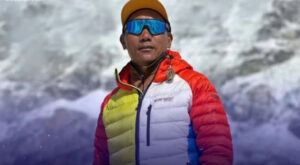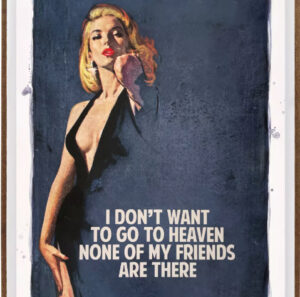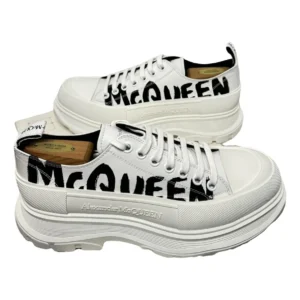Tony Hawk is a name synonymous with skateboarding. Beyond being a legend in the sport, he has influenced pop culture in ways few athletes ever have. His Tony Hawk’s Pro Skater video game series not only introduced a generation to the thrill of skateboarding but also shaped their musical tastes with its iconic soundtracks.
At the same time, skateboarding itself has evolved into one of the most inclusive and accessible sports in the world, bringing together people of all backgrounds and skill levels.
In this article, we explore Tony Hawk’s views on video game soundtracks, their impact on the skateboarding community, and why he believes skateboarding is the most inclusive sport on the planet.
The Legacy of Tony Hawk’s Pro Skater Soundtracks
When Tony Hawk’s Pro Skater (THPS) debuted in 1999, it wasn’t just the groundbreaking gameplay that captivated players—it was the music. The game’s punk, rock, hip-hop, and ska-infused soundtrack created an unforgettable atmosphere that became a defining feature of the series.
For Tony Hawk, curating the perfect playlist was just as important as nailing the mechanics of the game. “Music has always been a part of skateboarding,” Hawk has said in interviews. “Skateboarding and music go hand in hand. When you’re skating, you’re usually listening to something—it fuels the session.”
A Game-Changing Soundtrack
The first Tony Hawk’s Pro Skater featured bands like Dead Kennedys, The Vandals, and Goldfinger, with “Superman” by Goldfinger quickly becoming the game’s unofficial anthem. The song’s upbeat, high-energy vibe perfectly matched the thrill of landing tricks and stringing together massive combos.
As the series progressed, so did the music. Later installments introduced players to hip-hop legends like Public Enemy and Nas, alongside punk and rock staples such as Rage Against the Machine, Bad Religion, and The Ramones. The result was a soundtrack that defined an era—many players discovered their favorite bands through THPS.
Even today, the legacy continues. When Tony Hawk’s Pro Skater 1+2 was remastered in 2020, great care was taken to include many of the original tracks, while also adding newer artists to reflect skateboarding’s ever-evolving culture.
The Impression on Music Discovery
For many fans, THPS wasn’t just a video game—it was a gateway to an entire world of music. Players who grew up on the franchise often credit the soundtracks for introducing them to punk rock, ska, and underground hip-hop.
Musicians, too, recognize the importance of being featured in the game. In an interview, John Feldmann of Goldfinger said that being on THPS was a career-defining moment. “We were just a ska-punk band, and suddenly, kids all over the world knew ‘Superman.’ It was surreal.”
Artists like Zebrahead, Lagwagon, and Millencolin also saw massive exposure through the games, proving that a well-placed song on a soundtrack could be as influential as radio airplay or MTV.
Why Skateboarding is the Most Inclusive Sport
While the music of THPS was a game-changer, the real heart of the series—and skateboarding itself—is its inclusivity. Unlike traditional team sports that often require expensive gear, formal training, and structured rules, skateboarding is open to anyone, anywhere, at any time.
No Barriers to Entry
One of the reasons Tony Hawk believes skateboarding is the most inclusive sport is its low barrier to entry. All you need is a skateboard and a place to ride—whether it’s a sidewalk, a local skatepark, or an empty swimming pool. There are no expensive uniforms, no membership fees, and no coaches dictating how you should play.
This accessibility has made skateboarding a lifeline for kids in underserved communities. Organizations like Skateistan and The Skatepark Project (formerly the Tony Hawk Foundation) work to bring skateboarding opportunities to youth in places where traditional sports may not be available.
“There’s no gatekeeping in skateboarding,” Hawk has said. “If you want to skate, you skate. No one is going to tell you you’re not good enough to play.”
A Culture of Creativity and Individuality
Unlike mainstream sports that emphasize competition, skateboarding is deeply rooted in self-expression. Every skater develops their own unique style, choosing how they ride, what tricks they learn, and even how they dress.
Hawk has always championed this freedom. “Skateboarding isn’t about being the best—it’s about doing what feels good to you,” he says. “Some people are all about big tricks, others are about smooth style. There’s no ‘right’ way to do it.”
This mindset makes skateboarding welcoming to all skill levels. You don’t have to be the next Tony Hawk to be a part of the culture. Whether you’re just learning to ollie or mastering 900s, every skater is part of the community.
Breaking Down Social Barriers
Another key reason skateboarding is so inclusive is that it transcends social, racial, and economic boundaries. Skate parks bring together kids from different backgrounds who might never interact otherwise.
“There’s no status in skateboarding,” Hawk explains. “You can have a rich kid, a kid from the projects, and a kid from the suburbs all skating the same spot. No one cares where you’re from—they care about how you skate.”
This inclusive nature has made skateboarding one of the most diverse action sports in the world. Today, there are thriving skate scenes in places as far-reaching as South Africa, Afghanistan, and Brazil.
A Sport for All Genders and Ages
Historically, skateboarding was often seen as a male-dominated sport, but that has changed dramatically in recent years. More women and non-binary skaters are stepping into the spotlight, proving that skateboarding is for everyone.
Events like X Games, Street League, and the Olympics now feature women’s divisions, showcasing top-tier talent from skaters like Leticia Bufoni, Sky Brown, and Lizzie Armanto.
“Skateboarding doesn’t care about your gender,” Hawk says. “It’s about passion, creativity, and having fun.”
Even age isn’t a limitation—kids as young as five and adults in their 50s or 60s are still pushing themselves on their boards. Hawk himself is proof that skateboarding is a lifelong pursuit.
Impression
Tony Hawk’s influence extends far beyond his competition days. From revolutionizing video game soundtracks to championing inclusivity in skateboarding, his impact is undeniable.
The Tony Hawk’s Pro Skater soundtracks didn’t just create nostalgia—they helped shape musical tastes, push underground bands into the mainstream, and solidify the connection between skateboarding and music. Meanwhile, skateboarding continues to be one of the most inclusive sports in the world, embracing diversity, creativity, and accessibility like few others.
As the sport continues to evolve, one thing remains clear: Skateboarding is for everyone, and that’s exactly how Tony Hawk always wanted it to be.
Tony Hawk performing a skateboard trick, highlighting the inclusivity and cultural impact of skateboarding.
Breadcrumb Title:
Tony Hawk on Skateboarding & Music
No comments yet.








